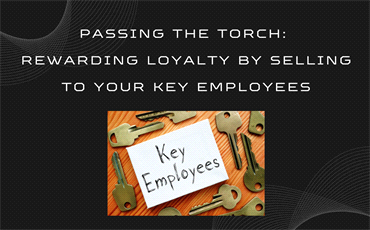Is Your Business Prepared For A Disaster?
Adverse weather or a cyber breach can affect any business
Is Your Business Prepared for a Disaster?
If the last two years have taught us anything, it’s that things can happen out of nowhere. From extreme weather events like a tornado and flash flood to cyberattacks to a global pandemic, nothing can be ruled out. For small businesses, this means there should be a greater emphasis on disaster preparedness and contingency planning.
What is a contingency plan?
A contingency plan is a set of protocols and tactics that businesses can use to survive disasters. These negative events could be anything from the death of a partner or key employee to natural disasters, a pandemic, or cyberattacks.
Businesses that have contingency plans have disaster preparedness that allows them to minimize or mitigate the impacts of negative events.
With a contingency plan, everyone in the business knows what they have to do in the likelihood of such an event. Instead of panicking, team members rely on an action plan to save critical assets.
This will allow them to focus on important tasks while avoiding duplication. Individuals would also know who’s in charge of what area, which will encourage better coordination and faster and more effective interventions.
How to prepare your business for disasters
Knowing that no business is immune to destabilizing events, disaster preparedness should be a strategic objective of all small businesses. You can follow these steps to prepare your small business for negative events.
1. Imagine scenarios
A pandemic would bring all physical retail transactions to a halt and disrupt supply chains. If it’s a natural disaster, you’re looking at delayed shipments and price rises. A cyber breach means you might lose all information stored online.
These realistic assessments will tell you what can go wrong. One way to do this is by looking at all the negative impacts of the last two decades with a particular focus on your industry.
2. Seek the service of experts
Disaster preparedness requires the service of those with specialty expertise. You don’t have to go too far to find them. These are your accountants, bankers, and attorneys who would have seen or studied industry-wide downturns.
You can also ask your old employees or consultants who specialize in your industry. These conversations will get you specific inputs on how to prepare various functions of your business.
3. Rehearse situations
Now that you know what can possibly go wrong, it would be of immense help if you can rehearse those scenarios. What if your office locality gets flooded? How will you access your digital information if all the systems are down?
Will these be short-term or long-term disruptions? Who would be in charge of managing those situations? These will help you create an action plan with specific tactics.
4. Think of business-specific scenarios
The next step is to come up with situations that would specifically affect your industry, locality, or economy. How would you handle the situation if your major supplier can’t deliver the goods for a month? What if your biggest client or customer can’t buy from you anymore?
Are there growing customer expectations around your industry regarding sourcing, packaging, or something else? These scenarios will help you create specific action plans.
5. Assign responsibilities
Whether it’s cyber security or fire drills, you will have to select key individuals to be in charge. Once you select them, it’s important to let them know what they have to do. Importantly, you will have to train your team members to prepare for and deal with negative events.
Who’s in charge of saving vital data? Who will coordinate with suppliers or retailers? Who will be the first point of contact for emergency responders?
6. Communicate the plan
A plan is useless unless everyone in the team knows about it. Once you develop action plans for various scenarios, you should diligently share those with your employees. You should ensure that it’s easy to understand and supported by necessary visuals or illustrations.
Small businesses should also share their plans with their business associates, vendors, retailers, accountants, attorneys, bankers, and consultants.
In short
Considering the hectic schedule of most small business owners, it’s not surprising that the vast majority don’t prioritize disaster preparedness. That’s primarily because most businesses think that an adverse weather event or a cyber breach are things that only happen to others. But as we have learned, they can affect anyone, and disaster preparedness is key to managing those challenges.
Recent articles for you
Larry Goldstein of First Choice Business Brokers
License: NV RE S.0188852
Permit: Business Broker Permit BUSB.0007059
Navigation Links
Want to receive new business listing alerts by email?
The World's Authority in Business Sales
© 2023 Larry Goldstein of First Choice Business Brokers | Each office is independently owned and operated. Privacy Policy






